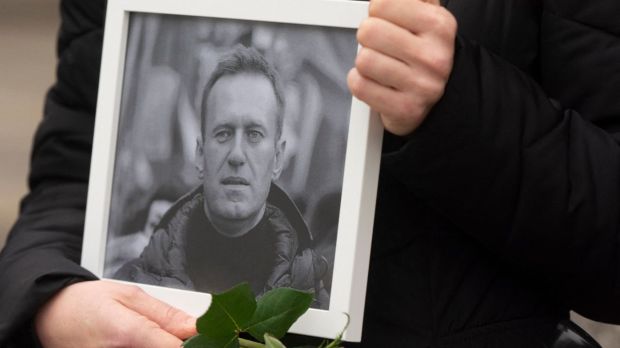What does it take to be an honest dissident?
First, it requires courage — almost incomprehensible courage.
In 1933, a young German Pastor Dietrich Bonhoeffer penned “The Church and the Jewish Questions,” an essay serving as a sharp rejoinder against the the Nazi’s “Civil Service Reconstruction Law” which ousted all Jews (except for very narrow exceptions) from holding office or serving as civil servants. During the “honeymoon period” of Adolf Hitler’s first hundred days as Chancellor and at great risk to himself, Bonhoeffer caustically criticized the inhumanity of the Third Reich, “We are not to simply bandage the wounds of victims beneath the wheels of injustice,” Bonhoeffer insisted, “we are to drive a spoke into the wheel itself.”
Aleksandr Solzhenitsyn, a Russian solider arrested for criticizing Joseph Stalin in a private letter, discovered the rot of Soviet ideology and the brokenness inherent in all humanity during his eight years in the Siberian Gulag. In Solzhenitsyn’s novel, The First Circle, a Russian Ministry official Innokenty Volodin, teetering on the precipice of a phone call that could lead to arrest, torture, and prison, asks, “If one is forever cautious, can one remain a human being?”
Second, it requires unwavering conviction.
During the draconian Nazi occupation of Poland in 1941, Karol Wojtyla (the future St. John Paul II) participated in the clandestine Rhapsodic Theater in which the young Poles produced captivating plays and epic poems thick with Polish culture and infused with rich Catholicism. As George Weigel records it, “Karol Wojtyla deliberately chose the power of resistance through culture, through the power of the word, in the conviction that the ‘word’ (and in Christian terms, the Word) is that on which the world turns.”
Dietrich von Hildebrand, a Catholic philosopher and outspoken critic of the Nazi regime was reviled enough by Hitler’s Nazi henchman to be dubbed “Hitler’s Enemy Number One.” After years of articulating a profoundly thoughtful (and faithful) Catholic philosophy in opposition to National Socialism, an older and revered priest approached Hildebrand to ask, “Do you know that God has granted you a rare sensus supernaturalis (sense for the supernatural)? And do you realize clearly the responsibility that such a gift entails?”
And, finally, it requires illuminating clarity.
In speaking about his charge as a Prince of the Church in the crucible of Communist oppression, Hungarian Cardinal József Mindszenty affirmed, “I wish to be the conscience of my people. As the appointed guardian, I knock upon the doors of your souls. Contrary to the errors that are now springing up, I proclaim to my people and my nation the eternal truths. I want to resurrect the sanctified tradition of our people.”
And Dietrich von Hildebrand worried that his friends and fellow countrymen risked being warped by their fears, their appetites, and their wishful thinking. “[I had to] shed new light,” he said, “on the absolute impossibility of any kind of compromise with National Socialism. For it is unbelievable how vulnerable our human nature is to falling into illusions and to growing numb in our indignation over injustice which we come to accept. Here, as in so many others in life, we must be like the conductor of an orchestra, in continually renewing the call to alertness. The moment one lets up, people fall asleep, or at least become indifferent.”
Inside Vladimir Putin’s Russia, Alexei Navalny was an honest dissident. A Russian lawyer and activist, Navalny tenaciously confronted a vicious autocrat formed by KGB ruthlessness and a system that had devolved to a kleptocratic gangster state. He spread his anti-corruption message clearly and fearlessly across town squares and social media channels. Navalny gave speeches and wrote tracts, organized protests and ran for office. And, in return, he was brutalized. Slandered and persecuted, arrested and prosecuted, imprisoned and tortured. Navalny was poisoned with a nerve agent and sprayed in a Zelyonka attack. After imprisonment on trumped-up fraud charges, he faced further charges which simply heaped on decades of prison time. Recently transferred to a hellish Siberian prison, with increasingly patchy contact with family and representatives, Navalny would die under suspicious circumstances on February 16, 2024. He was 47 years old. Navalny knew the cost of being an honest dissident.
Several years before, in 2021, Alexei Navalny returned from safety in Germany to continue his campaign against Putin’s corruption in Russia. He could have stayed abroad. He could have trumpeted his cause from grand capitals of the Western world. He could have been courageous, yet comfortable. Instead, he came home. To his Motherland. To his people. To his duty. In doing so, Alexei Navalny was immediately arrested. In the closing statement of his 2021 trial, Navalny confessed,
[Now] I am a believer, and that helps me a lot in my activities, because everything becomes much, much easier. I think about things less. There are fewer dilemmas in my life, because there is a book in which, in general, it is more or less clearly written what action to take in every situation. It’s not always easy to follow this book, of course, but I am actually trying. And so, as I said, it’s easier for me, probably, than for many others, to engage in politics. …
It is said, “Blessed are those who hunger and thirst for righteousness, for they will be satisfied …” I’ve always thought that this particular commandment is more or less an instruction to activity. And so, while certainly not really enjoying the place where I am, I have no regrets about coming back, or about what I’m doing. It’s fine, because I did the right thing. On the contrary, I feel a real kind of satisfaction. Because at some difficult moment I did as required by the instructions, and did not betray the commandment.
What does it take to be an honest dissident? Incomprehensible courage, yes. Unwavering conviction, of course. Illuminating clarity, to be sure.
But there is something else we, as Catholics, must not forget. There is something known to the Saints and Martyrs, stalwarts and seekers, and, yes, to honest dissidents. It is the firm knowledge that the Source of your joy is Jesus Christ. It comforts and inspires, it soothes and emboldens, and it explains just why we fight.
As St. Paul so joyfully wrote from the darkest of prisons:
Rejoice in the Lord always. I shall say it again: rejoice!
Your kindness should be known to all. The Lord is near.
Have no anxiety at all, but in everything, by prayer and petition, with thanksgiving, make your requests known to God.
Then the peace of God that surpasses all understanding will guard your hearts and minds in Christ Jesus.
Finally, brothers, whatever is true, whatever is honorable, whatever is just, whatever is pure, whatever is lovely, whatever is gracious, if there is any excellence and if there is anything worthy of praise, think about these things.
(Phil 4: 4-8)
For once you know Christ, you begin to change. And when you begin to change, you may — inch by inch — change the broken world for the better.
And that’s what it takes to be an honest dissident.
Alexie Navalny, Requiescat in Pace


